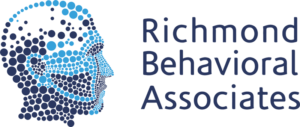Understanding Opioid Addiction Disorder: A Comprehensive Overview
Opioid addiction disorder is a pressing public health issue that affects millions of people globally. Understanding this complex condition is crucial for addressing it effectively, supporting those in need, and fostering healthier communities. This blog post will delve into the nature of opioid addiction disorder, its impact, treatment options, and ways to support recovery.
What is Opioid Addiction Disorder?
Opioid addiction disorder, also known as opioid use disorder (OUD), is a medical condition characterized by the compulsive use of opioid substances despite adverse consequences. Opioids are a class of drugs that include prescription pain relievers (such as oxycodone, hydrocodone, and morphine), as well as illicit substances like heroin. These drugs work by binding to opioid receptors in the brain and body, which can relieve pain but also produce feelings of euphoria.
When used properly under medical supervision, opioids can be effective for pain management. However, their potential for addiction arises from their ability to alter brain chemistry. Regular use can lead to physical dependence, where the body becomes accustomed to the drug, and psychological dependence, where users feel a strong craving and compulsive need to continue using the substance.
Signs and Symptoms of Opioid Addiction Disorder
Recognizing opioid addiction disorder is essential for seeking timely help. Common signs and symptoms include:
- Increased Tolerance: Needing higher doses of the drug to achieve the same effect.
- Withdrawal Symptoms: Experiencing symptoms such as nausea, vomiting, muscle aches, and anxiety when not using opioids.
- Cravings: Intense and persistent urges to use opioids.
- Loss of Control: Using more of the drug than intended or for longer periods.
- Neglecting Responsibilities: Failing to meet work, school, or family obligations due to drug use.
- Continued Use Despite Harm: Persisting in opioid use even after experiencing negative consequences, such as health issues, relationship problems, or legal troubles.

Treatment and Recovery
Effective treatment for opioid addiction disorder typically involves a combination of approaches:
- Medications: Medications such as methadone, buprenorphine, and naltrexone can help manage withdrawal symptoms, reduce cravings, and support recovery. These are often used in conjunction with behavioral therapies.
- Behavioral Therapies: Cognitive-behavioral therapy (CBT), contingency management, and motivational interviewing are common therapeutic approaches that address the psychological aspects of addiction and help individuals develop coping strategies.
- Support Groups: Peer support through groups like Narcotics Anonymous (NA) can provide encouragement, understanding, and shared experiences that are crucial for recovery.
- Rehabilitation Programs: Inpatient or outpatient rehab programs offer structured environments where individuals can receive comprehensive care, including medical supervision, therapy, and support services.
- Holistic Approaches: Integrating holistic methods, such as mindfulness, yoga, and nutrition, can complement traditional treatments and promote overall well-being.
Conclusion
Opioid addiction disorder is a serious and complex condition that requires a multifaceted approach to treatment and support. By understanding the nature of addiction, recognizing its impact, and exploring effective treatments, we can work towards better outcomes for those affected and contribute to broader societal health. Whether you’re facing addiction personally or supporting a loved one, remember that help is available, and recovery is possible.
If you or someone you know is struggling with opioid addiction disorder, reach out to a healthcare professional or local support organization for assistance. Together, we can make a difference in the fight against opioid addiction.





